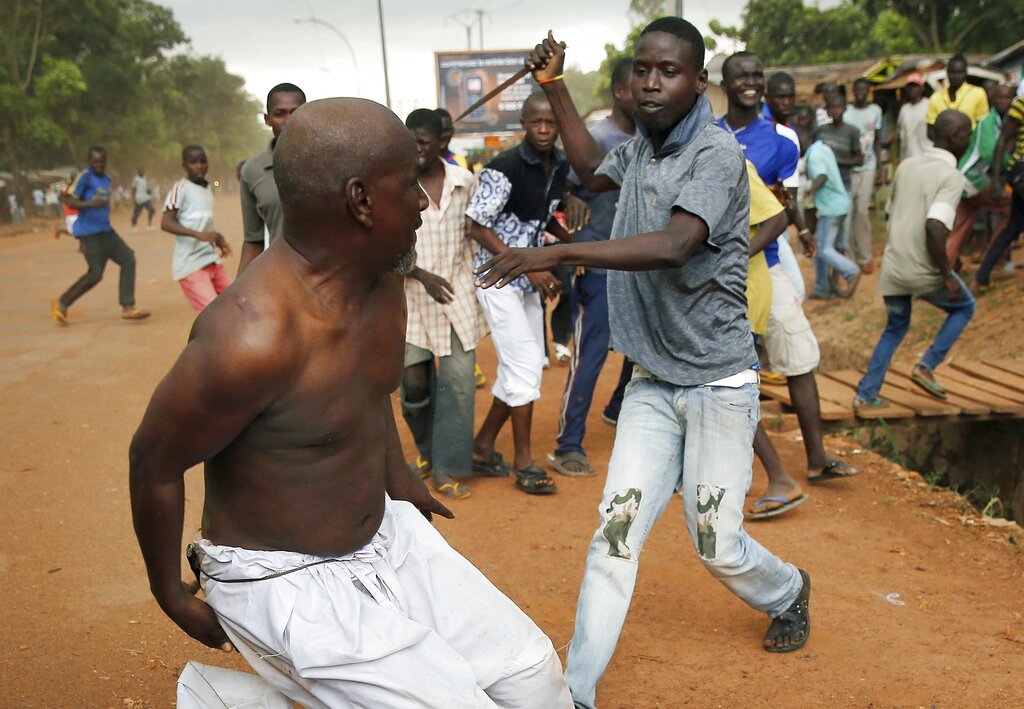ADF STAFF
Rebels killed at least 21 people, including children and a Soldier, in the northern Central African Republic (CAR) in late December. Nzakoundou village residents blamed the attack on a rebel group that claims to protect Muslim Puehl herdersbut has been accused of mass killings and looting.
“The rebels first attacked the army checkpoints, killing one person and wounding several others, before attacking the civilian population, killing about 20 people,” Ernest Bonang, a federal lawmaker who represents Nzakoundou, told The Associated Press.
News of the attack did not surprise many observers, as the CAR has experienced intercommunal fighting since 2013, when predominantly Muslim Seleka rebels overthrew former President François Bozizé. Majority-Christian militias later fought back.
Amid that chaos, al-Qaida leaders saw an opportunity to mobilize.
Failed Campaign
The terrorist organization launched a global media campaign that tried to persuade Muslims to take up arms with Seleka due to mass killings of Muslims across the country, according to Caleb Weiss, a senior analyst at the Bridgeway Foundation, which works to prevent genocide.
The campaign was led by al-Qaeda in the Islamic Maghreb, which accused France of ethnic cleansing, and other groups affiliated with the organization followed. Late al-Shabaab leader Mukhtar Abu Zubayr equated violence against Muslims in CAR with “what Muslims went through in Bosnia,” as Weiss reported in the Foundation for Defense of Democracies’ Long War Journal.
“We say to the Muslims of the Central African Republic: seek refuge in the weapon and fight against your enemies to defend your religion, your honor and your wealth,” Zubayr said. He also joined calls encouraging Muslims from outside of CAR to support jihad “with any means possible.”
Ansar al-Shari’a Tunisia, another al-Qaida-affiliated group, argued that France’s presence in the CAR was meant to weaken Muslim influence and loot minerals and resources. Al-Shabaab, al-Qaida’s East Africa branch based in Somalia, also was active in CAR mobilizations efforts.
Despite the campaign, al-Qaida’s attempts to “garner support and mobilize people to armed jihad was a noticeable failure,” Weiss wrote in the Long War Journal. “No known jihadist presence inside CAR, either through a local Central African group or from a foreign group moving into CAR, was ever reported.”
Persistent Challenges
The CAR continues to face critical security challenges despite al-Qaida’s failed mobilization efforts and the presence of state, United Nations peacekeepers and Russian mercenary forces.
The Coalition of Patriots for Change in 2023 notably launched a series of attacks on forces in northern CAR. Former President Bozizé formed the coalition in 2020.
“In their new offensive, the rebels have used weapons and combat strategies new to CAR — such as homemade drones, improvised explosive devices (IEDs) and abductions — taking government forces by surprise,” Enrica Picco, Central Africa project director for the International Crisis Group, said on the group’s website.
Amid the ongoing intercommunal clashes, the CAR announced in February that about 10,000 children still are involved with armed groups as fighters, spies, messengers and cooks. Although 15,000 children have escaped from rebel forces, many are traumatized and find it difficult to reintegrate into society.
The U.N. has established training programs for former child combatants to become mechanics, masons, carpenters or to take up other professions. Some are becoming peace ambassadors.
“I took up arms because Seleka killed my mother and father,” a former child fighter named Arsene told The Associated Press. He said a Christian rebel group recruited him when he was 14, but he left after three years.
Ousmane, another former child combatant, said that joining the rebels ruined his life. “What we did is indescribable,” he said.

